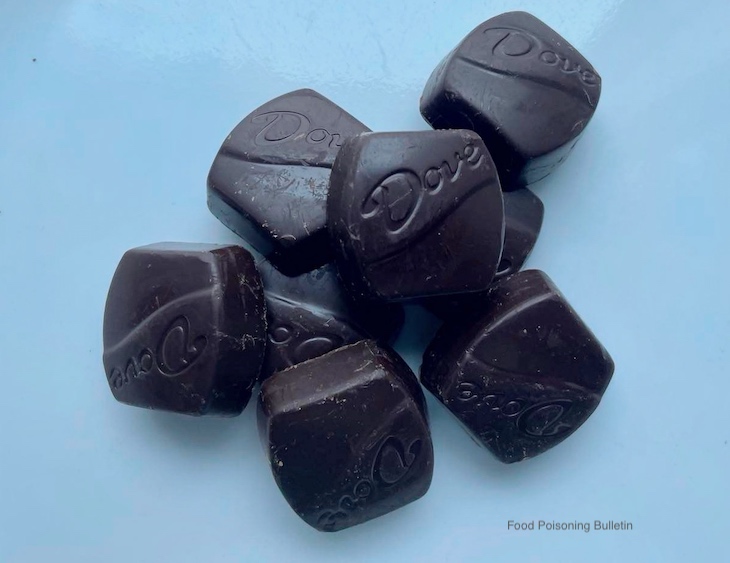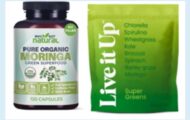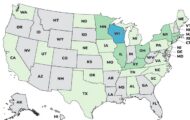Consumer Reports has found high levels of lead and cadmium in some dark chocolate candy brands. A study conducted by As You Sow found that many popular brands contain alarming levels of those heavy metals.

Most people believe that dark chocolate is healthier than milk chocolate. And it may improve heart health. But this information may make some people rethink that assumption. Lead can cause significant health problems, including cancer, and it can reduce IQ and cause learning disabilities in children. Cadmium causes damage to reproductive organs, and can also damage the liver, kidneys, and bones.
As You Sow has filed legal notices with more than 20 companies that make these dark chocolate candies, including Hershey’s, Trader Joe’s, Lindt, Whole Foods, Kroger, Godiva, See’s Candies, Mars, Equal Exchange, Ghirardelli, Chocolove, and Kroger.
Consumer Reports found heavy metals in all 28 dark chocolate bars that they tested. For 23 of those chocolate bars, eating just one ounce a day would put an adult over a level that public health officials say could be harmful. Five of the bars were above the levels for both radium and lead.
The problem is that cacao plants take up cadmium from the soil when they grow. Lead contaminates the cocoa beans after they are harvested. When the beans were picked and removed from pods, the lead levels decreased, but when they were dried in the sun, they were re-contaminated.
Tunde Akinleye, the Consumer Reports food safety researcher who led this testing project said inn a statement, “While most people don’t eat chocolate every day, 15 percent do, according to the market research firm Mintel. Even if you aren’t a frequent consumer of chocolate, lead and cadmium can still be a concern.” Akinleye adds that because some companies can make bars without those high levels of heavy metals, they can do more of it.
The chocolate bars that were high in both lead and cadmium were Trader Joe’s The Dark Chocolate Lover’s Chocolate with 85% Cacao, Theo Organic Pure Dark 70% Cocoa, Theo Organic Extra Dark Pure Dark Chocolate 85% Cocoa, Lily’s Extremely Dark Chocolate 85% Cocoa, and Green & Black’s Organic Dark Chocolate 70% Cacao.
Chocolates such as Dove Promises Deeper Dark Chocolate 70% Cocoa were high in cadmium, while Godiva Signature Dark Chocolate 72% Cocoa was high in lead. You can see all of the tested chocolates and the results on the Consumer Reports site.
The safer choices include Mast Organic Dark Chocolate 80% Cocoa, Ghirardelli Intense Dark Chocolate 86% Cacao, and Valrhona Abinao Dark Chocolate 85% Cacao, among others.
UPDATE: The National Confectioners Association reached out to us and asked that this statement be included: “Chocolate and cocoa are safe to eat and can be enjoyed as treats as they have been for centuries. The California Office of Environmental Health Hazard Assessment (OEHHA) standards cited in the Consumer Reports study are not food safety standards. An expert investigation conducted through our prior California Proposition 65 settlement concluded that cadmium and lead are present in cocoa and chocolate due to soil and that bean cleaning during processing cocoa beans reduces lead in chocolate products. The products cited in this study are in compliance with strict quality and safety requirements, and the levels provided to us by Consumer Reports testing are well under the limits established by our settlement. Food safety and product quality remain our highest priorities and we remain dedicated to being transparent and socially responsible.
“In 2018, the chocolate and cocoa industry agreed to a Consent Judgment in California. The Superior Court of the State of California, San Francisco County granted a motion to enter the Consent Judgment on February 14, 2018, which remains in effect. The Consent Judgment established concentration levels for both lead and cadmium that supersede the OEHHA MADLs for cocoa and chocolate products. Earlier this year, we released with As You Sow a three-year study on this. The full report and our joint reaction can be found here.”




